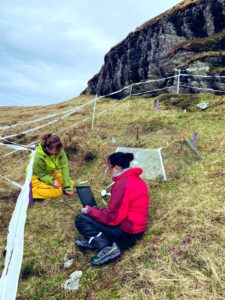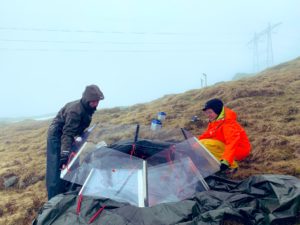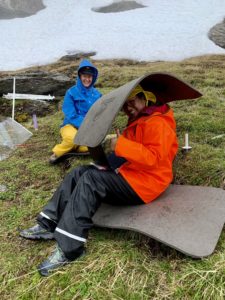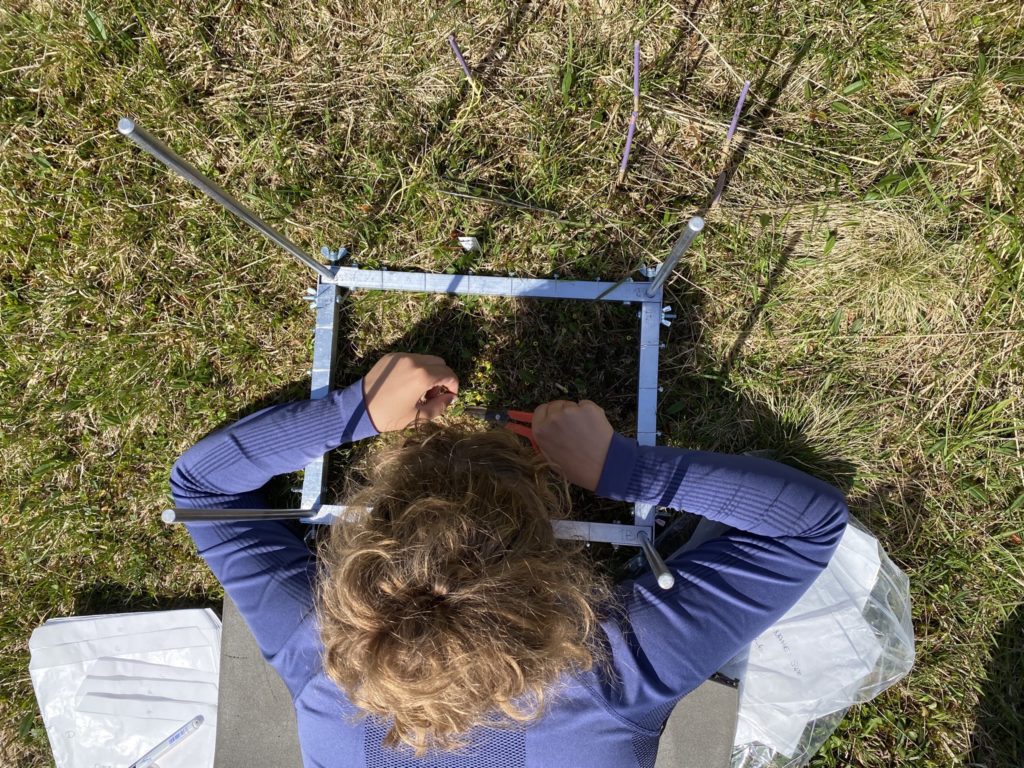 a. What is your background? Where are you from? What do you study? What are you most interested in, scientifically?
a. What is your background? Where are you from? What do you study? What are you most interested in, scientifically?
My name is Camilla, 22 years old from Kristiansand, Norway. I finished my bachelor’s degree in Biology this summer. Furthermore, I am thinking of taking a master’s degree that is biology related. I am not sure what I want to specialize in yet, but hopefully would this internship and a year with a post bachelor help me decide.
I am most interested in alpine ecology, especially when it comes to climate changes and how the alpine ecosystem will change over the years. This interest has grown over the past years, and last semester I was so lucky that I got a chance to work with this through a course called Bio299 where I got the opportunity to join a scientific project where Ragnhild Gya was my supervisor.
My name is Solveig and I am also 22 years old, but I come from Trondheim, Norway. I finished my bachelor’s degree in Biology at UiB this summer. I am planning on applying for a master’s programme at NMBU at Campus Ås next, but first I will attend a Folk High School (folkehøyskole) for one year to practice my creative writing skills.
Scientifically, I am most interested in conservational biology and ecology. The complexity of ecosystems fascinates me, and strikes me as essential to preserve and restore. Camilla alike, I also find climate change and its effects on alpine plant communities very interesting. Luckily for us, this is exactly what our internship is about!
 b. Give us a brief summary of your internship project. What is the study system? Primary research questions? With whom are you working?
b. Give us a brief summary of your internship project. What is the study system? Primary research questions? With whom are you working?
Our internship project is a part of INCLINE, an EECRG project, where the focus is on indirect climate changes impacts on mountain plant communities. INCLINE is separated in 3 work-packages where WP1 is where we belong. Through field experiments we will investigate and disentangle the impacts of three different factors. (i) Direct effects of climate warming, (ii) indirect effects of changes in interactions between already present species, and (iii) indirect effects of introduced novel species interactions. The goal is to gein a better understanding how plant populations, plant communities, biodiversity and ecosystem functions are affected by climate change directly, indirectly, and through novel interactions.
The group consists of several people, but we are assigned to help put Ragnhild Gya with the field work in her Ph.D. Others that will join us are Vigdis, Dagmar, Joachim and Siri.
 c. What is your role in the research team in terms of tasks and responsibilities, and how do these relate to the aims of the research project?
c. What is your role in the research team in terms of tasks and responsibilities, and how do these relate to the aims of the research project?
So far, we have done preparation on two sites and removals on the two other sites. Preparations can be all sorts of tasks, from setting up an electrical fence around our site (preventing animals from grazing on our valuable science-plants) to loading data from the climate stations. In some plots, we are removing the neighbours to or two alpine species, Veronica alpine and Sibbaldia procumbens. All the plants except the V. alpine and S.procumbens are removed with some help from a scissor and a pair of tweezers. Due to the late snowmelt on some of the locations, we had to set up some of the OTC (open top chambers) that we couldn’t set up earlier. OTC’s are miniature greenhouses, but without a roof. They are great for simulating climate warming because they increase the temperature of a plot with approximately 2 degrees Celsius, but without making it drier! Ragnhild will study the both the direct effects of climate changes on plant communities and indirect effects of changes in interactions between already-present species. The OTC’s increasing the average temperature by around 2°C is a direct effect whilst removing the neighbours is an indirect effect.
d. What were your specific goals for the upcoming internship? These can be both scientific and personal. Are you meeting, or did you (if the internship is complete) accomplish your goals? Please explain with specific examples if possible.
Camilla: My goal was to learn more about ecology and at the same time get an insight into how field works in practice. I have previously done a lot of lab work for INCLINE when I took the course bio299, so I was very excited to work with the same species out in the nature. The experience from the lab work was useful to have, but not necessary to become an intern. However, my experience made my tasks more varied, where I for example, helped to finish the germination project at the lab, the same project that I worked on in Bio299.
Solveig: I applied for the internship to get some hands-on knowledge on the life of a biologist. Three years of mostly theoretical study has tired my brain a bit and my motivation this spring was quite low for further education in general. During the internship so far, I have got a huge motivation boost. I was not sure if academic research could be an option for me, but after spending just one week together with experienced scientists like Vigdis and Ragnhild, I look at research with new eyes. To be able to do work both inside and outside, together with so many different people, diving deep into a specific topic and overlooking no details; This is a much more dynamic and vibrant field of work than I previously thought!
f. How has the COVID19 pandemic altered your plans or your experience during this internship?
COVID-19 has not affected us greatly. The group was small from the beginning and we are depended on cars to get to the different locations. So, the focus has been on do not get the virus in to the group. This meant, among other things, having contact with as few people as possible during the holiday.

Great blog, INCLINE #dreamteam! We were very lucky to have you out there this summer! I’m glad to hear you find working in the field, with the plant s and the experiments (and the people!) motivational! It still fires me up, too, many decades down the road from where you are 😉